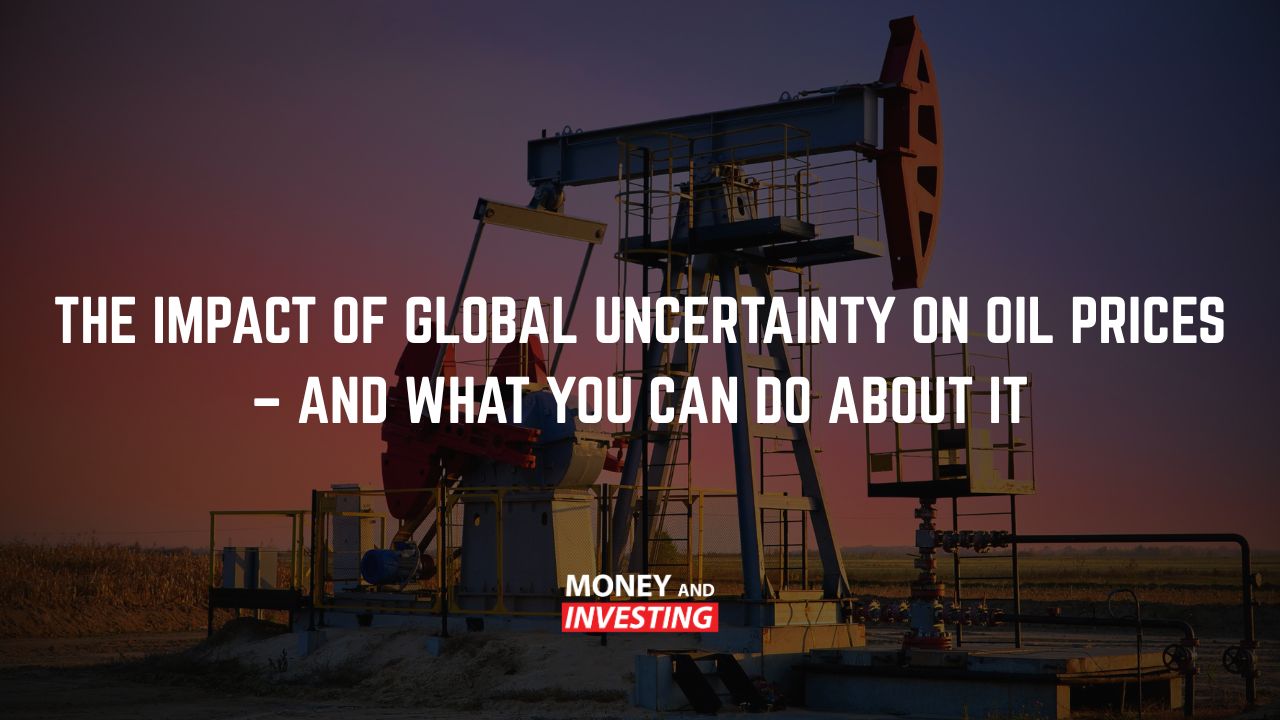views
In a world defined by constant change, one thing remains clear—global uncertainty has a direct impact on oil prices, and consequently, your wallet. Whether you're a consumer, investor, or business owner, the shifting tides of geopolitics, supply chains, and economic instability can significantly affect energy costs. Andrew Baxter, a respected financial strategist and market commentator, shares expert insights on what these oil price fluctuations mean for you—and how to respond strategically.

The Link Between Global Uncertainty and Oil Prices
Oil is more than just a commodity—it’s the lifeblood of the global economy. From transportation to manufacturing, nearly every industry depends on stable and affordable oil. This means that any disruption in the global landscape—be it political conflict, economic downturns, or trade restrictions—can send oil prices soaring or plummeting.
Andrew Baxter explains, “Markets are highly sensitive to uncertainty. When there’s unrest in major oil-producing regions or instability in global trade, oil prices often spike due to fear of supply disruptions.”
For example, tensions in the Middle East, OPEC+ production cuts, or even speculation about interest rate changes by central banks can trigger major movements in oil markets. Likewise, macroeconomic challenges like inflation, war, or pandemics can reduce demand or increase costs, further influencing prices.
How Volatility Impacts Everyday Consumers
If you’ve noticed your gas bill rising, you’re not alone. The average consumer feels the pinch of higher oil prices almost instantly at the pump, but that’s just the beginning. Elevated oil prices can also cause:
- Increased transportation and shipping costs
- Higher food prices due to fuel-dependent agriculture
- Rising airfare and travel expenses
- Inflation in goods that rely on oil-based production (like plastics)
Baxter highlights, “When oil prices rise, the effect ripples across the entire supply chain. It’s not just about fueling your car—it affects everything from grocery store prices to utility bills.”
What Investors Need to Know
For investors, oil price swings represent both risk and opportunity. Energy stocks, commodities, ETFs, and even currencies can be affected by shifts in the oil market.
Andrew Baxter advises a balanced approach: “Don’t overreact to headlines, but do pay attention to macroeconomic indicators. Diversification and risk management are key when navigating energy markets in uncertain times.”
He also points out that some sectors benefit from higher oil prices, including energy companies, oilfield services, and alternative energy startups. On the other hand, transportation, airlines, and manufacturing often suffer during oil spikes.
Investors can hedge risks through oil futures, options strategies, or commodity-linked ETFs—but these instruments require deep understanding and careful planning.
Strategies to Protect Yourself
Whether you're managing a household budget or an investment portfolio, there are ways to mitigate the impact of oil price volatility:
1. Stay Informed
Understanding what drives oil prices is the first step to protecting yourself. Follow reputable sources, monitor geopolitical developments, and consider expert commentary from professionals like Andrew Baxter.
2. Adjust Your Budget
If fuel costs are rising, look for areas in your budget where you can cut back or substitute. Consider energy-efficient appliances, carpooling, or using public transport to reduce dependency on gasoline.
3. Diversify Investments
Avoid putting all your financial eggs in one basket. Baxter recommends exposure to different asset classes that respond differently to oil price changes, such as real estate, equities, and bonds.
4. Explore Renewable Alternatives
As oil prices fluctuate, many consumers and companies are looking into renewable energy solutions like solar or electric vehicles. These alternatives can reduce your reliance on oil and offer long-term savings.
5. Think Long-Term
Don’t panic over short-term spikes. Oil markets are inherently volatile, and prices often normalize over time. Andrew Baxter notes, “The best financial decisions are made with a clear head and a long-term perspective.”
Final Thoughts from Andrew Baxter
As a veteran of financial markets, Andrew Baxter urges people to be proactive, not reactive, when it comes to global uncertainty and oil prices.
“You can’t control the market, but you can control how you respond. Whether it’s adjusting your expenses, rebalancing your investments, or simply becoming more informed, taking action now can save you significant money and stress later.”
With the world facing continued economic and geopolitical shifts, understanding the relationship between global uncertainty and oil prices is more important than ever. Fortunately, with insights from experts like Andrew Baxter, you don’t have to navigate it alone.



Comments
0 comment